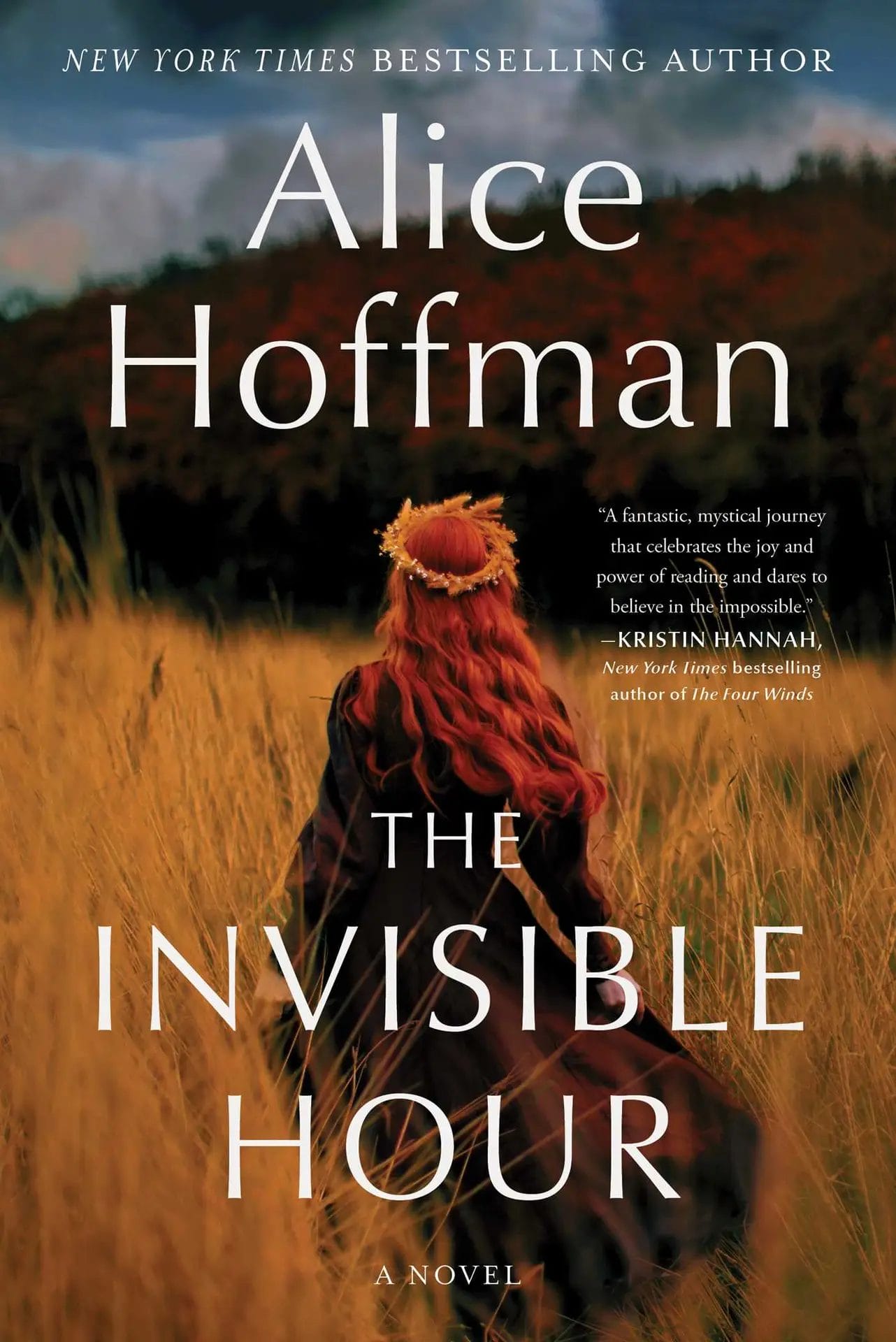

The Invisible Hour
The latest New York Times bestseller from beloved author Alice Hoffman celebrates the enduring magic of books and is a “wonderful story of love and growth” (Stephen King).
One June day when Mia Jacob can no longer see a way to survive, the power of words saves her. The Scarlet Letter was written almost two hundred years earlier, but it seems to tell the story of Mia’s mother, Ivy, and their life inside the Community—an oppressive cult in western Massachusetts where contact with the outside world is forbidden. But how could this be? How could Nathaniel Hawthorne have so perfectly captured the pain and loss that Mia carries inside her?
Through a journey of heartbreak, love, and time, Mia must abandon the rules she was raised with at the Community. As she does, she realizes that reading can transport you to other worlds or bring them to you, and that readers and writers affect one another in mysterious ways. She learns that time is more fluid than she can imagine, and that love is stronger than any chains that bind you.
As a girl Mia fell in love with a book. Now as a young woman she falls in love with a brilliant writer as she makes her way back in time. But what if Nathaniel Hawthorne never wrote The Scarlet Letter ? And what if Mia Jacob never found it on the day she planned to die?
From “the reigning queen of magical realism” (Kristin Hannah, New York Times bestselling author), this is the story of one woman’s dream. For a little while it came true.
My thoughts:
I read Alice Hoffman’s “Practical Magic” several years ago and remember really enjoying it. I also really liked the movie with Nicole Kidman and Sandra Bullock. I was excited to jump into this one, and while I mostly enjoyed the book, I couldn’t help but feel that there was something missing, a depth that was left unexplored.
The story revolves around Mia Jacob, a young woman who finds solace in books, particularly Nathaniel Hawthorne’s timeless classic, The Scarlet Letter. The problem is Mia lives in the oppressive confines of the Community—a cult-like society in rural Massachusetts that forbids contact with the outside world and demonizes books.
When Mia’s mother tells her about the library in town, Mia manages to find a way to sneak in one day while working at the farmer’s market, and a whole new world opens for her. Just when her life seems beyond repair, she stumbles upon the book that will change her forever. The Scarlet Letter seems to tell the story of her own mother, Ivy, and the secrets that lay buried within the Community. Mia becomes consumed by the belief that Hawthorne somehow understood her pain and that there is a connection between her life and his words.
As Mia embarks on a journey of self-discovery, heartbreak, and love, she begins to unravel the mysteries of time and the power of literature. She realizes that perhaps books have the ability to transcend reality, transporting readers to other worlds.
Hoffman’s prose is rich, creating a vivid tapestry that brings the story to life. Her descriptions of the idyllic Massachusetts landscape, the stifling atmosphere of the Community, and the complexities of Mia’s emotions are well crafted and draw the reader deep into the heart of the narrative.
One of the strengths of The Invisible Hour lies in its exploration of the fluidity of time. Mia’s journey takes her through different periods in history and across different dimensions of time. Through these travels, she uncovers the true power of love and the strength it has to overcome even the most binding chains.
However, as I mentioned earlier, despite these strengths, I couldn’t shake the feeling that the book merely scratched the surface of its potential. The merging of historical events with fiction and the exploration of magical realism are intriguing concepts, but they felt underdeveloped. I really wanted a deeper exploration of the characters and the ramifications of time travel.
Additionally, there were moments when the pacing of the narrative felt uneven. While this may have been intentional to create a sense of mystery and suspense, it left me feeling somewhat unsatisfied.
Overall, this is an enchanting book that will appeal to many, especially those who enjoy a unique blend of magical realism and historical fiction. Despite its flaws and the fact that it left me wanting more, I still enjoyed the story and appreciated the message. It’s not always a bad thing when a book leaves you wanting more. This one is just under 300 pages. Another hundred would have fleshed things out even more and maybe left me feeling a little more satisfied.
While I may have wanted more from the story, it is, without a doubt, a well-crafted and thought-provoking novel that will leave readers pondering the connections between the written word and the human experience.
Genre(s):
Other Bookish Tags:
Book Club/Book Box:













